Women in policing play an important role in making our communities a safe place to live and work.
However, nationally, women make up only 12% of sworn officers and 3% of police leadership.
MPD is proud to be a national leader in this area – women make up approximately 24% of our sworn workforce – but we believe we can still do more to increase the representation of women in our ranks.
In an effort to further the recruitment, retention and promotion of women in policing, MPD signed the 30x30 pledge in November 2021. The 30×30 Initiative is a coalition of police leaders, researchers, and professional organizations who have joined together to advance the representation and experiences of women in policing agencies across the United States.
The ultimate goal of this national campaign is to increase the representation of women in police recruit classes to 30% by 2030, and to ensure police policies and culture intentionally support the success of women officers throughout their careers. (The 30×30 Initiative is based on the importance of achieving at least 30% representation to empower a group to influence an organization’s culture.)
Read more about MPD's 30x30 Commitment below:
- MPD Commits to Hiring More Women in New 30×30 Pledge
- Mayor Bowser Announces Metropolitan Police Department’s 30x30 Initiative to Hire More Women as MPD Officers
- 'This pledge is important': DC Mayor, Police Chief vow to hire more female officers
- DC Mayor, Police Chief Pledge to Recruit More Women Officers
Advice for Women Entering Policing
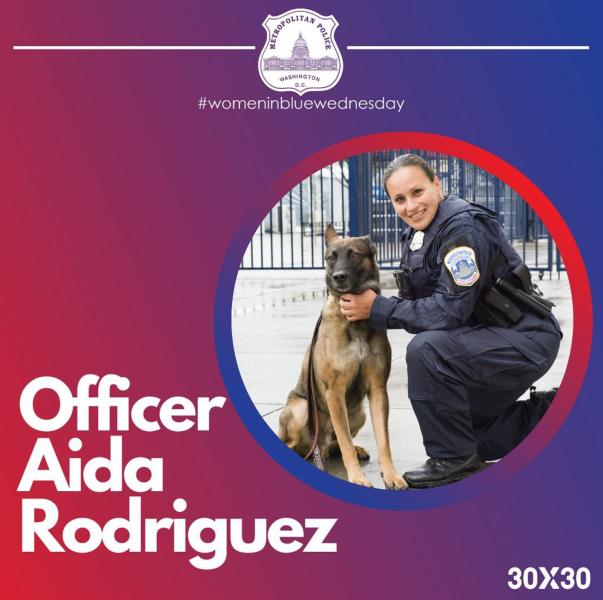
"My advice to women entering law enforcement is women are stronger than we tend to think and believing in ourselves is key. Additionally, don’t be afraid to challenge yourself, put yourself out there and work hard everyday to become better than you were the day before. By believing and pushing myself, I was able to join K9 and now I am able to work with my best friend every day. So never quit dreaming and never give up on yourself." - Officer Aida Rodriguez
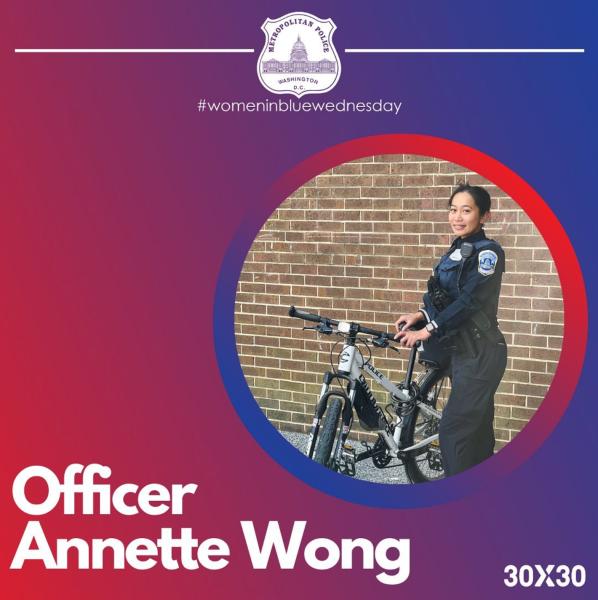
"My advice for women entering law enforcement is to be the best that you can be and be better than you were the day prior. Strive to leave a positive impact with every individual you interact with. Every interaction, whether good or bad, can be a learning experience. Leaving any situation with a positive impact is one step towards bettering the community. And no two situations are ever the same. If you want and would love a challenging career, this is the place for you." - Officer Annette Wong
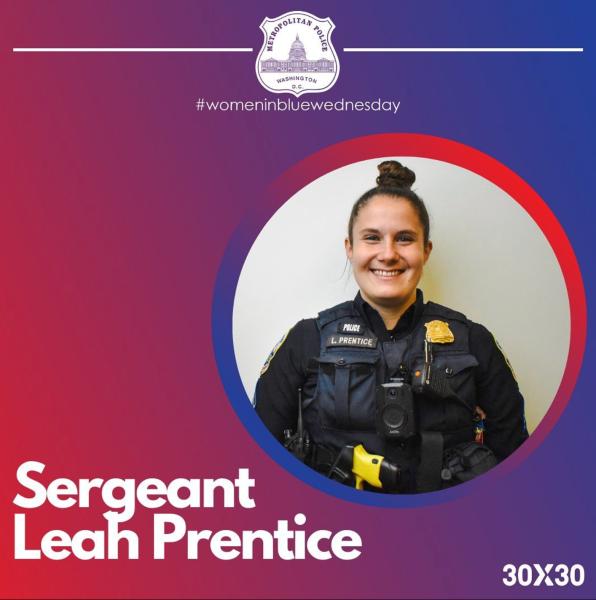
"My advice to women entering law enforcement is to maintain who you are and have confidence in your abilities. Know your strengths and weaknesses. The experiences you've been through as a woman have shaped you, and made you the person you are today. Those experiences are valuable, and will allow you to make a tremendous impact on many peoples’ lives." - Sergeant Leah Prentice
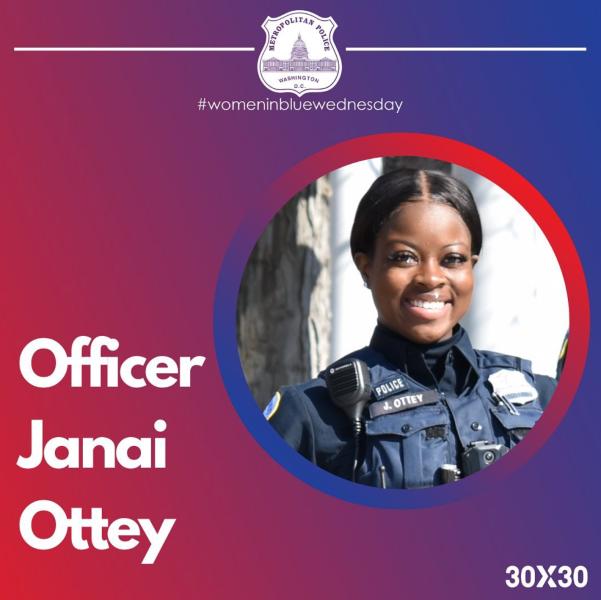
"My advice to women entering law enforcement is to stay focused, determined, and motivated. This profession isn’t a walk in the park; obstacles and challenges will come. However, with a strong ethic, you will overcome any adversities with perseverance." - Officer Janai Ottey
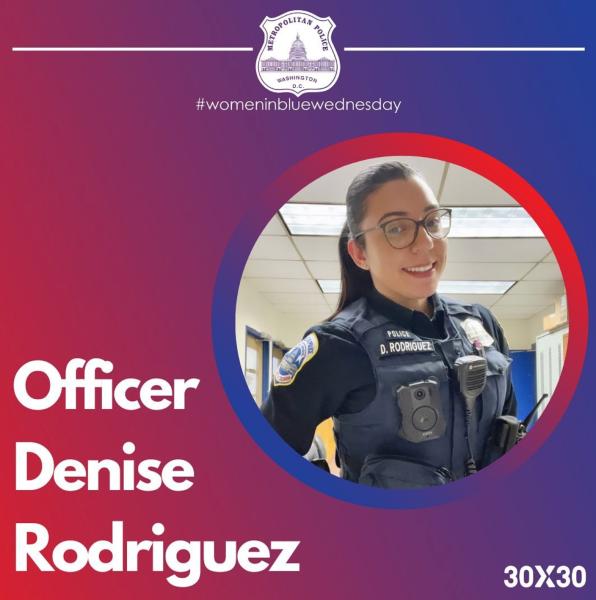
"My advice to women in law enforcement would be, we are capable of more than what we think we are. Don’t be afraid of the challenges you’ll face while on the department because growth follows right after, and your success will impact many and inspire more." - Officer Denise Rodriguez
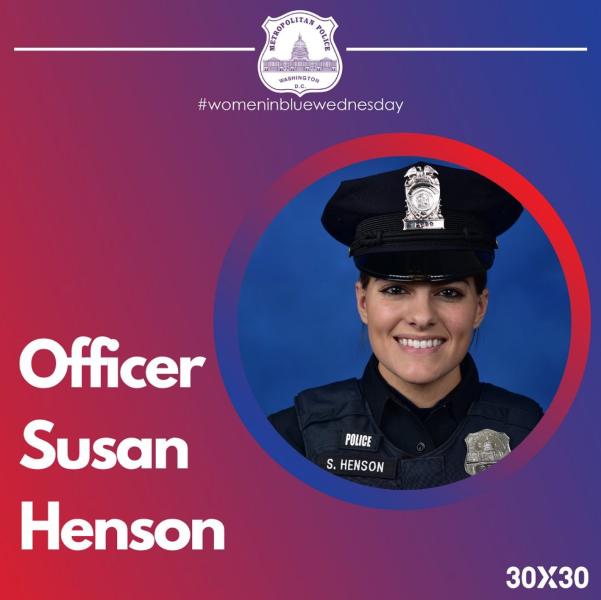
"Being a police officer during these tumultuous times is a challenging, yet rewarding, career. It will teach you to believe in yourself, trust your instincts and prove you’re more capable than you may have thought. As a woman, you will be judged from the moment you decide to pursue a career in law enforcement. However, if you do your job with respect, kindness and compassion, you will not only meet people’s judgments but far surpass them." - Officer Susan Henson
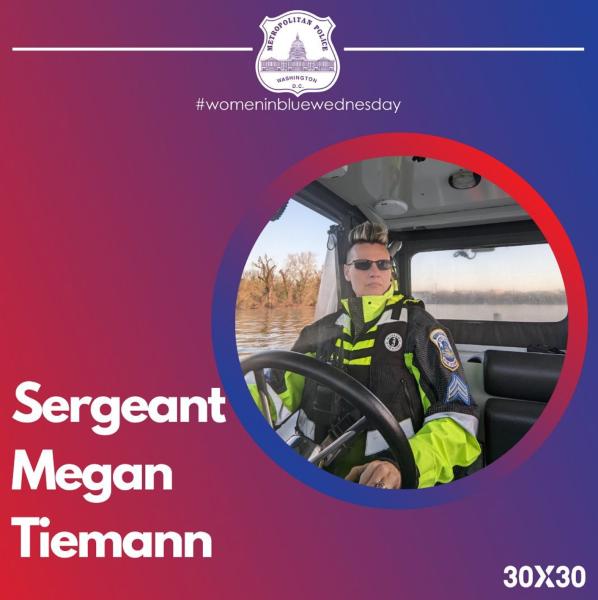
"As a woman in law enforcement, you will be presented with what you think are impossible challenges. However, strong law enforcement women will look each challenge in the eye and give it a wink." - Sergeant Megan Tiemann
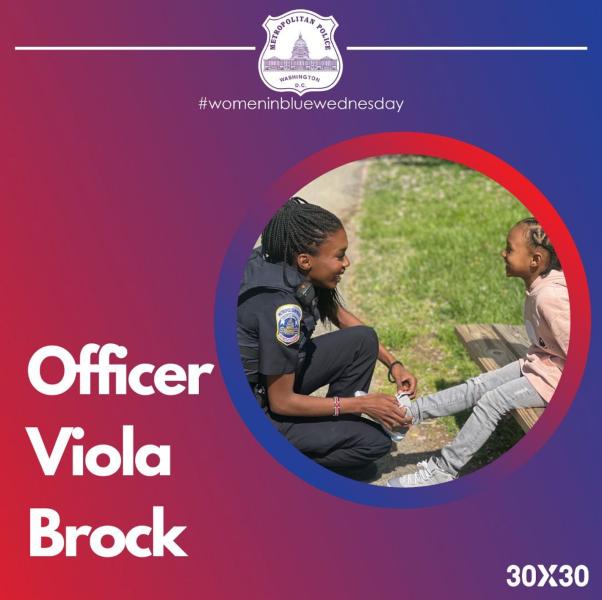
"My advice to women entering law enforcement would be, don’t let anyone discourage you from being a police officer, women in policing are changing departments for the better. You can be a part of that change." - Officer Viola Brock
Benefits for Women at MPD
Below are a few major benefits for women at MPD:
- DC Paid Family Leave - MPD employees are entitled to:
- Up to 8 weeks for the birth of a child
- Up to 8 weeks to care for a family member with a serious health condition
- Up to 8 weeks for the legal and non-legal placement of a child
-
Scheduling - Patrol officers work four 10 hour shifts followed by three consecutive days off. This allows you to have a work-life balance.
-
Lactation Rooms - MPD provides private, sanitary lactation rooms in every station for new mothers to express breast milk. These lactation rooms are available 24/7, including holidays. It is our policy to provide reasonable break times during work to allow mothers to use the lactation rooms.
-
Fair and Transparent Promotional Opportunities - After just 3-5 years of patrol experience, MPD members are eligible to apply to join a specialized unit or be promoted in rank. Many women at MPD grow on the Department and take advantage of these opportunities early on in their careers.
-
Employee Wellness - Employee Well-Being - The Employee Well-Being Unit at MPD offers multiple resources to MPD members. The MPD Wellness website contains information on many services at MPD, including the Chaplain Corps, Family Support Team, Athletic Trainer and more! The website also includes resources and information organized by the six dimensions of health — physical, mental, spiritual, financial, social, and intellectual. A monthly wellness newsletter provides additional information on local and national resources for you and your family. MPD members have free access to Headspace, an app that offers meditations, sleep stories, and tools to aid in stress management. The Employee Well-being Unit has also received several grants to develop additional wellness programs and services for officers throughout their career. As a DC government employee, you are also eligible for several wellness benefits and additional perks are underway.
Articles
Check out some of the studies on the benefits of having women in law enforcement, below:
- Women in Policing: Breaking Barriers and Blazing a Path
- The Percentage of Women in State Policing Has Stalled Since 2000
- Increasing Women Police Recruits to 30% Could Help Change Departments' Culture
- Recruiting and Retaining Women: A Self Assessment Guide for Law Enforcement
- Women in Control? The Role of Women in Law Enforcement
Meet the Women at MPD
Here at MPD, women play an integral role in law enforcement in the District of Columbia. For example, women have risen to all ranks at the Department including the rank of Sergeant, Lieutenant, Captain, Inspector, Commander, Assistant Chief of Police and even Chief of Police. Women have also worked in the below assignments:
- Mountain Bike
- Special Liaison Branch (SLB)
- Motorcycle Unit
- Emergency Response Team (ERT)
- K9
- Harbor Patrol
- Homicide Branch
- Internal Affairs Division
- Honor Guard
- Academy Instructor
- Community Outreach
- Special Operations Division
- Public Information Office
- Field Training Officer
Meet Some of the Women at MPD
Frequently Asked Questions
How do I learn more about what it’s like to be a woman in MPD?
Join us for a ride-along! You’ll have the opportunity to talk to officers of all different backgrounds and hear about their experiences.
Are there different physical fitness standards for men and women?
The Physical Ability Test at Prospect Day is the same for both men and women.
Do men and women wear different uniforms? Are there any uniform accommodations for women?
While men and women have the same uniform standards, each recruit is measured for their uniform and is provided with clothing that fits their frame. Female officers’ ballistic vests are specifically tailored.
I think of policing as a very physical job, and I’m worried that I’m not as tall or as strong as a typical police officer. Can I still be effective?
Absolutely! While policing does have physical aspects, it is much more about communication skills, intelligence, and the ability to think critically. Effective police officers deescalate tense situations, mediate between different parties, write detailed narratives, interview suspects, testify articulately in court, work cooperatively on busy scenes, and much more. The Academy’s Physical Training component will help you develop the physical skills required to be an officer, regardless of height or size.
How does MPD support working mothers?
- When a member becomes pregnant, the decision to continue work on full duty status is the sole decision of the pregnant officer and their doctor. When the member requests, they will be transferred into light-duty status. Neither their pay nor their rank is affected by their pregnancy.
- MPD provides private, sanitary lactation rooms in every station for new mothers to express breast milk. These lactation rooms are available 24/7, including holidays. It is our policy to provide reasonable break times during work to allow mothers to use the lactation rooms.
- MPD currently provides 8 weeks of fully paid family leave, and DC FMLA provides 8 additional weeks of unpaid family leave.
What are the day-to-day activities of a police officer and what does it take to be effective?
The duties and day-to-day activities of a police officer can vary depending on the officer’s rank and assignment, but generally include the following:
- Patrolling: Officers are responsible for patrolling their designated area, responding to calls for service, and identifying and preventing criminal activity.
- Investigating: Officers are often the first responders to crimes and accidents, and must conduct initial investigations, collect evidence, and interview witnesses.
- Arresting: Officers have the authority to make arrests when they witness a crime or have probable cause to believe a crime has occurred.
- Maintaining Public Order: Officers are responsible for maintaining public order and safety, responding to disturbances, and mediating conflicts.
- Providing assistance: Officers often provide assistance to citizens in need - including responding to medical emergencies.
To be effective in these scenarios, police officers must have strong communication and interpersonal skills, be physically fit and able to handle stressful situations, and possess good judgment and critical thinking abilities. They must also have a thorough understanding of the law and be able to apply it appropriately in a variety of situations. Additionally, effective police officers must be able to build trust and rapport with the community they serve and be able to work collaboratively with other law enforcement agencies and community organizations to best serve Washington, DC.

